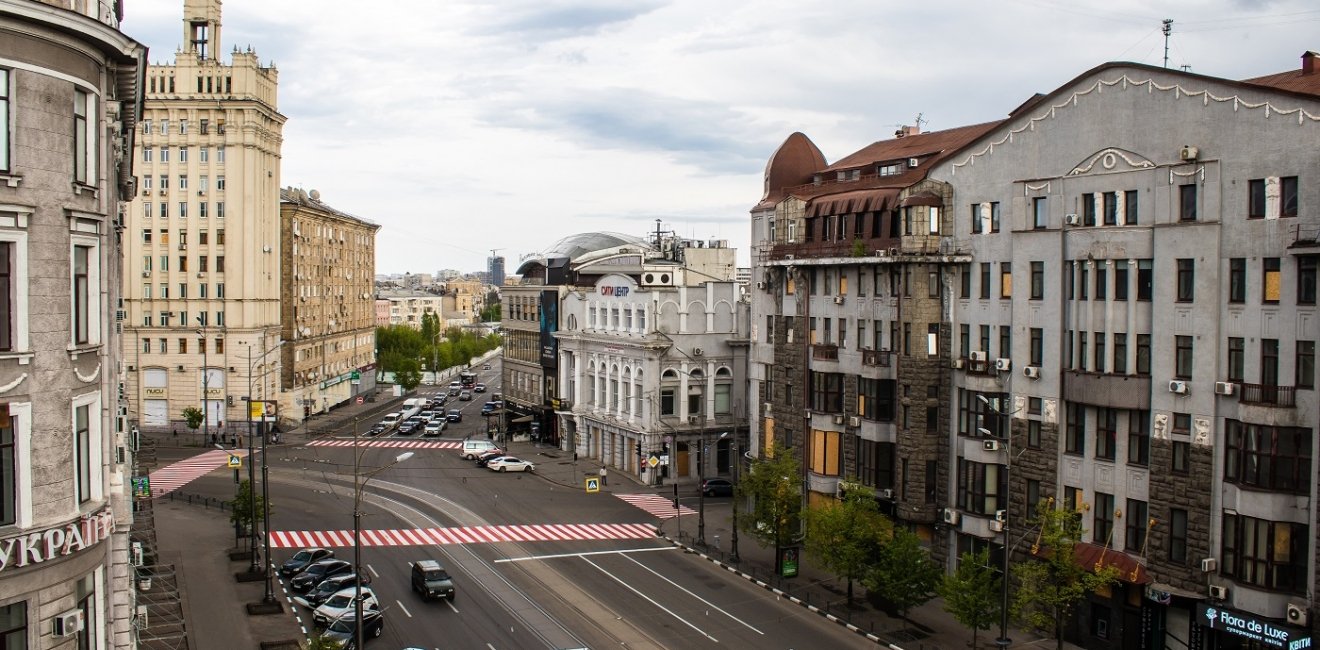
A blog of the Kennan Institute
Few Ukrainian cities have been as brutalized in recent months as Kharkiv. Just 30 kilometers from the border when the Russian full-scale invasion began, Kharkiv has been savagely attacked for nearly three years. The Russian bombardment escalated earlier this summer as the Russians launched a new offensive. Hardly a block of the city has gone unscathed, with many landmark buildings suffering grievous damage.
Civil and military authorities, emergency personnel and soldiers have defended the city heroically. Schools reopened underground to teach students no matter how brutal the attacks above. The local fire department has emerged as particularly courageous. Simply continuing to live in the city has become a brave gesture.
Incredibly, the city’s cultural life has persisted, even as more Russian bombs have fallen on it. Art shows, photo exhibits, classical music recitals, and chamber opera performances have continued, though in limited form. No one considered cancelling this year’s Kharkiv Music Festival, the annual highlight of the city’s classical music calendar. Bomb shelters, basements, and metro stations have served as arts venues in recent months as both performers and audience members continue to show up.
The city’s century-old Kharkiv Shevchenko Ukrainian Drama Theater managed to offer a full summer season (though in a diminutive, makeshift six-row hall). Live productions included Franz Kafka’s The Castle, Albert Camus’ Caligula, Neil Simon’s California Suite, the Brothers Grimm’s Musicians of Bremen, and Ukrainian classics such as Lesya Ukrainka’s Forest Song and Mykola Kulish’s My Mausoleum. The theater webcast many of these productions worldwide.
Today’s Drama Theater is a descendent of the illustrious Berezil Theatre founded by Les Kurbas in 1922. That company moved to Kyiv after Ukraine’s capital decamped from Kharkiv and was suppressed by the Soviet government during the 1930s. A new company took shape in Kharkiv out of the remnants of the earlier company. Further disruptions followed during World War II. The theater consolidated throughout the remainder of the Soviet era as a significant Ukrainian stage. The company came into its own following independence, especially under the artistic directorship of Andriy Zholdak in the early 2000s. Another cycle of political interference—this time over a controversial production of Romeo and Juliet in 2005—forced Zholdak to leave the theater for Germany.
Current Artistic Director Stepan Pasichnyk established himself as an actor, director, teacher, poet, and playwright during the years leading up to Ukrainian independence. Known for his philosophical bent, his work has appealed both to theater professionals as well as to large, youthful audiences. His leadership of the Shevchenko company has offered plentiful opportunity to experiment with blending realism and imagination. Like his company and hometown, Pasichnyk is a survivor.
The Drama Theater is one of many examples demonstrating how the war has energized the city’s cultural life to transcend mere survival. Local puppet theater actor Nina Khyzhna told The Guardian that “doing theatre here makes so much more sense [than abroad]. The audience has heard the same explosions in the night, their houses have shaken from the same shockwaves.” She returned to Kharkiv from an artistic residency in Austria, finding the sense of safety she felt in Europe an illusion. The war offered a “silver lining” of sorts, she said, since “the closeness of death every day clarifies your perception and pulls away the things that aren’t meaningful.” The arts, it turns out, remain meaningful for those who have remained in Kharkiv during the horrors of 21st century warfare.
One of this summer’s shows—Orchestra—looks to what comes next. Set in a small theater-café in postwar France, the audience becomes part of the setting. The proprietress Madam Hortens and her assistant Suzanne are bringing a women’s orchestra to the stage. Both women, it turns out, are in love with the same man. The theater’s showbill advertises a light, ironic comedy, or a “small mirror” on real life. As the play, full of heartbreaking surprises, continues, Kharkiv audiences see what can look forward once the present war ends: the minor sorrows of everyday life.
The opinions expressed in this article are those solely of the author and do not reflect the views of the Kennan Institute.
Author

Former Wilson Center Vice President for Programs (2014-2017); Director of the Comparative Urban Studies Program/Urban Sustainability Laboratory (1992-2017); Director of the Kennan Institute for Advanced Russian Studies (1989-2012) and Director of the Program on Global Sustainability and Resilience (2012-2014)

Kennan Institute
The Kennan Institute is the premier US center for advanced research on Eurasia and the oldest and largest regional program at the Woodrow Wilson International Center for Scholars. The Kennan Institute is committed to improving American understanding of Russia, Ukraine, Central Asia, the South Caucasus, and the surrounding region through research and exchange. Read more

Explore More in Focus Ukraine
Browse Focus Ukraine
Talking to the Dead to Heal the Living

Ukrainian Issue in Polish Elections


